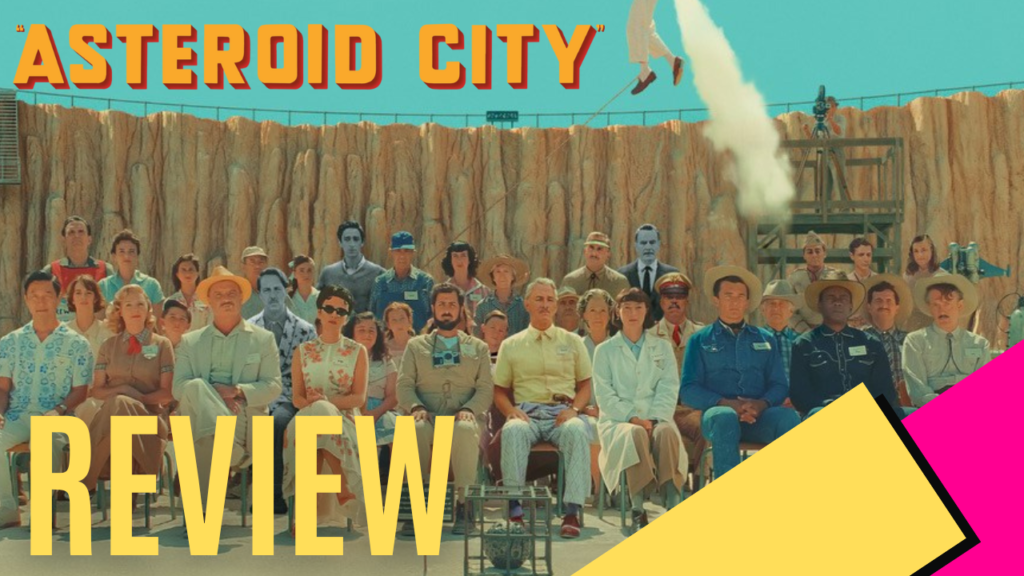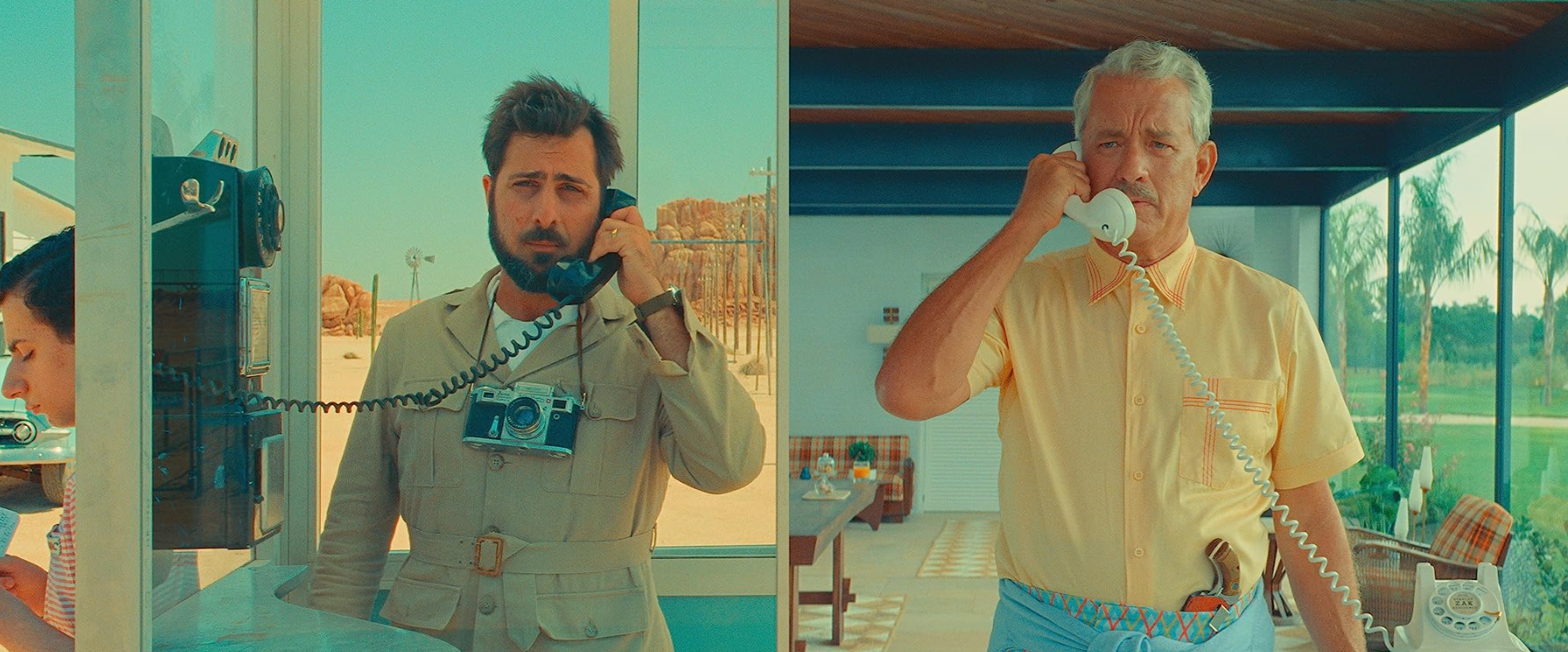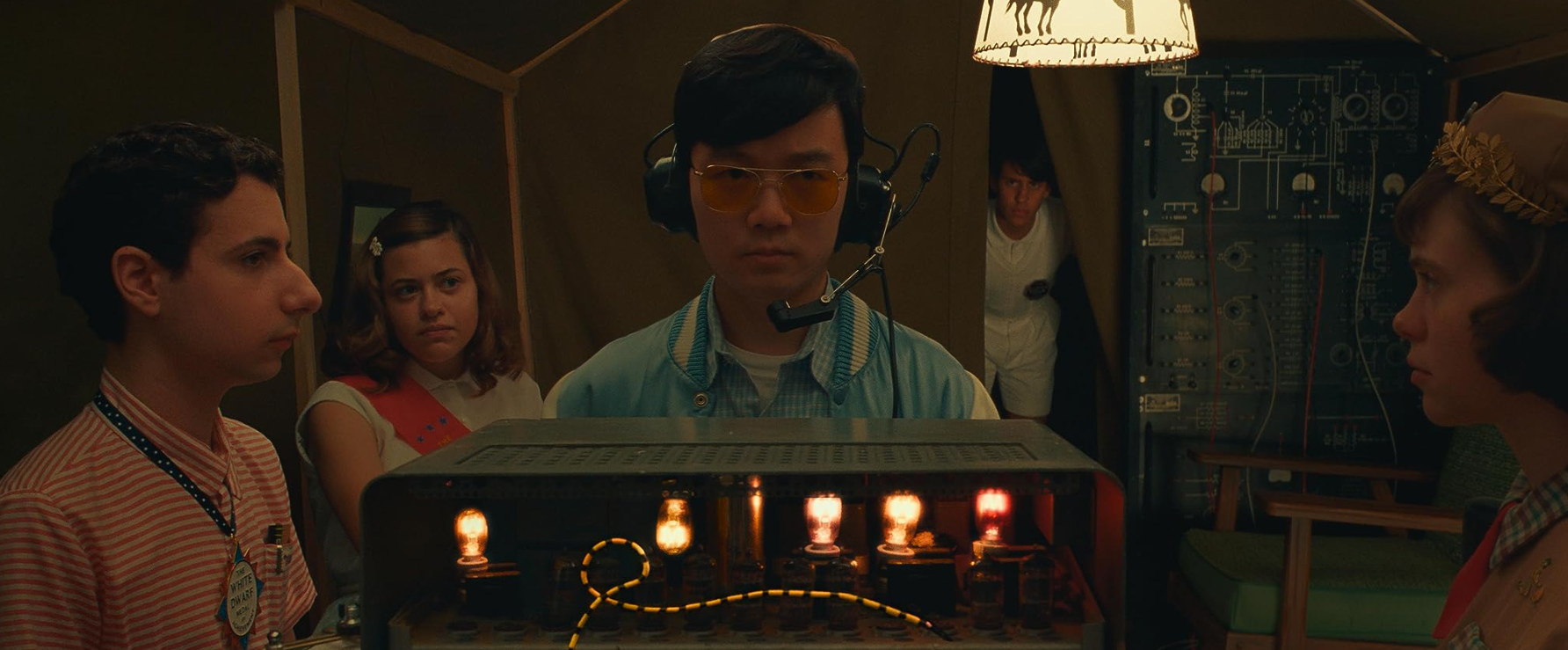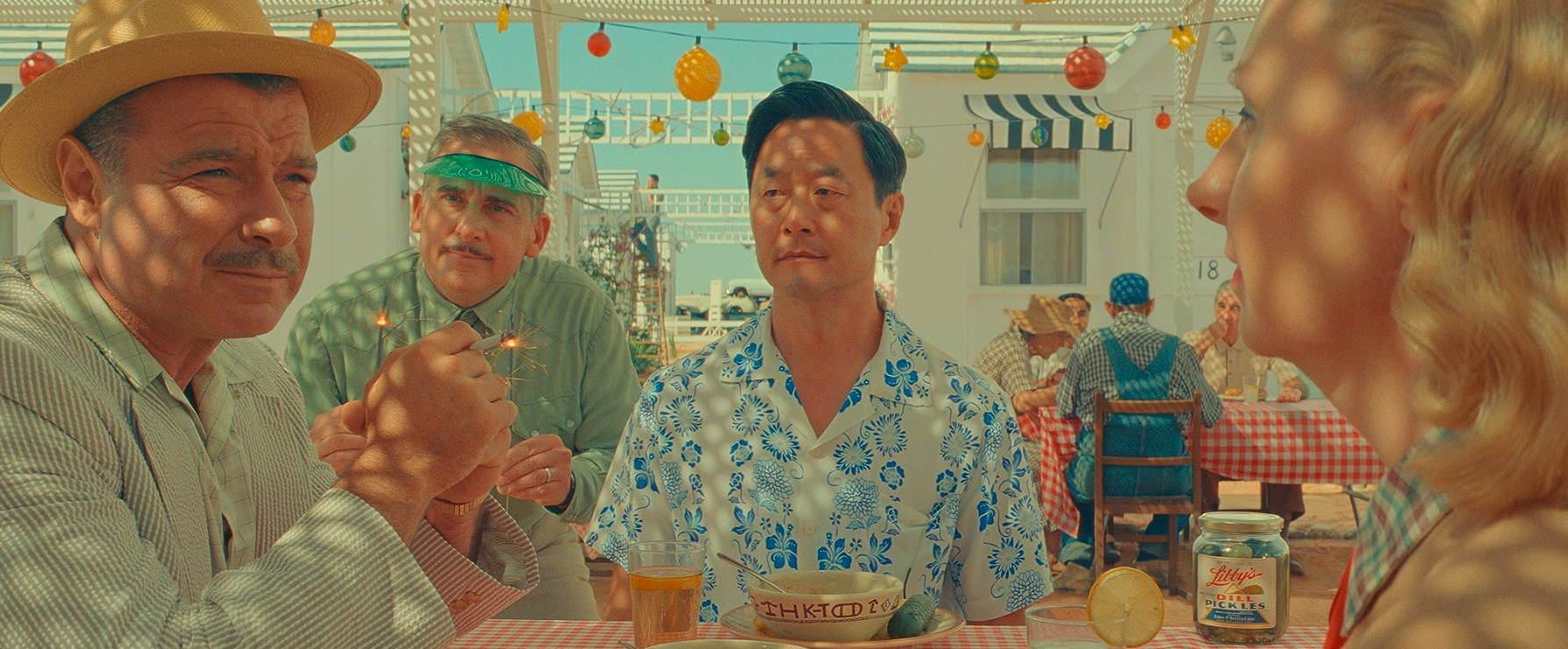
Every Wes Anderson film feels like that dream you have after you’ve eaten the leftover garlic gnocchi from three days ago; Far from a nightmare, but not quite all the way to “happy”, and there’s an area of imagination that is stained with coffee, dust and childhood heartbreak.
We watch with curious fascination as events unfold in a steady roll, rarely gaining enough energy to shock, surprise, or even raise the heart rate above the norm, but we persist nonetheless, because gosh darn it, that gnocchi was delicious.
Asteroid City rolls in this same fashion, but if there was ever a time when Anderson might have been too “Wes Anderson”, it may be this film. There are several layers to this film’s story in a literal meta sense which may turn a lot of people off, with characters shifting between a core story of typical Wes Anderson fare and an outer shell of artsy noir comedy that tells a tangentially related tale.
At its core, Asteroid City is an absurd, hyper-stylised film about a group of disparate people brought together in a small desert town by a children’s science fair. Frequent Anderson collaborator Jason Schwartzman plays Augie Steenbeck, a stoic war photographer who has to deal with the early loss of his wife, a genius son with whom he struggles to connect, and triplet daughters who are adorably and literally stupid.

Upon arriving in town, Augie strikes up a casual friendship with in-universe actress Midge Campbell, played straight and low by Scarlett Johansson. Midge is also in town with her genius daughter for the science symposium whilst using her spare time to practice her part for an upcoming role. Johansson and Schwartzman are a solid core to a varied cast of typical Anderson characters, spouting humour drier than the desert in which the movie is set.
Steve Carell shines here and there as the Motel Manager whose mysterious vending machines work almost like magic, and the marvelous Jeffrey Wright is outstanding as the eternally-flustered military General in charge of the local astronomy centre. There are several great monologues throughout this film, with Wright delivering at least three of them, and deservedly so.
Along with all this, there is a side story that follows the gifted children of the group as they find comfort and friendship with one another, playing memory games to the extreme and showing off their science projects for the gathered adults, however, they’re all played very flat in a purposeful Anderson style which appears to stylise the kids as stereotypically quiet and emotionally stunted. The lone standout amongst them is Ricky, played by Ethan Josh Lee, at a decibel louder than the rest, who leads the charge to break the story of the events happening in the small town.
Like the arid desert plains surrounding the incredibly small town of Asteroid City, the central story of the movie is played mostly flat and dry. There are plateaus of absurdness sprinkled throughout, but this inner play is only one part of the entire movie.

At the start, end, and sometimes in the middle of each act, we are taken a step above the core story to the surrounding tale. Shot completely in black and white, the next level up is the story of Conrad Earp, a performance phoned in by Edward Norton having a relaxing time.
Earp struggles to write the play about Asteroid City that we then watch in bright pastels. The separation of colours obviously serves to set the stories apart visually, but the black and white film combined with the single room sets gives a sense that we’re actually watching another play about a playwright writing the play that we then watch. If reading that last sentence confused you, just wait.
This atmosphere is further strengthened by yet another level of meta-commentary as the legendary Brian Cranston stands in front of each of these scenes and addresses the audience directly, acting as the narrator of these sections. It is through the interspersing of these meta scenes and the inclusion of Cranston that regular viewers may be turned off by the whole situation.
Actors from the colourful story that we’ve been engaged in will reappear as actors playing the parts of the characters, most notably Jason Schwartzman, again playing the actor who plays Augie Steenbeck. Schwartzman’s character in these scenes struggles to identify with the character that he’s meant to be playing and engages directly with Norton’s playwright, Earp, and the supposed director of the play, brought to life by Adrian Brody, who is obviously just pleased to be there and having fun.

As the movie rolls on, things get weirder in both the central story and surrounding narrative, and that uneasy dreamlike feeling kicks up a notch. Without revealing anything, there were some genuinely unsettling moments towards the end, the meaning of which will probably go over most people’s heads as Anderson makes no steps to clarify anything. The absurdity reaches a crescendo in both stories that crashes into a brick wall spray painted with Anderson’s handwriting.
If you’ve never seen a Wes Anderson film, this may not be the best place to start. It doesn’t take itself seriously, is drier than Antarctica in the winter, jumps between narrative and meta-narrative every fifteen minutes, and crams subtle and overt metaphors for dealing with grief through a grey filter, however, the majority of the characters are charming, the dialogue is more frequently funny than most other Anderson films, and the cinematography is stylised and visually interesting. It’s not a boring film by any stretch.
For fans of Wes Anderson, you can’t get more “Wes Anderson” than Asteroid City. The movie is full of his trademark humour, pastel production design, noir leanings, and is very tongue-in-cheek whilst hiding subtle character growth behind a fake beard and a pipe. As much as his previous films feel like stage plays dressed up for cinema, this feels like a stage play dressed up as a smokey dime store novel with a 1950s comic book inserted between the pages. As most Wes Anderson fans will no-doubt conclude, it’s some tasty gnocchi.

The Good
- Much funnier than it looks on the poster
- You can play “Spot The Celebrity Cameo” the entire way through
- There’s even a musical number written by Jarvis Cocker
The Bad
- Subtle, low energy acting typical of Wes Anderson films might not engage everyone
- Some parts are a bit “WTF” towards the end… and the middle
- Not as deep as it would have you believe








